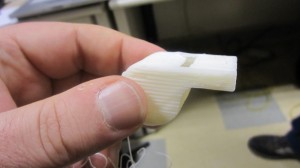Here is something you don’t see often; a hospital turning itself in for violating Medicare and the federal False Claims Act. It recently happened in Pennsylvania and happens more often than many people realize.
Last week Philadelphia’s U.S. Attorney, Zane Memeger, announced that St. Mary’s Medical Center located in Langhorne, Pennsylvania agreed to pay $2,339,224.70 to settle charges levied by the federal government after the hospital self-reported violating the false claims act.
Prosecutors say the hospital violated federal guidelines regarding payment guarantees to physicians. Hospitals sometimes offer payment guarantees to physicians as a recruitment tool. Hospitals do this as a way of attracting certain physician specialities needed to fill vacancies. Because hospitals also receive money from Medicare, the government has strict rules to insure that federal programs aren’t overbilled.
Companies self reporting are still relatively rare, although increasing. What makes this case especially interesting is that it is the second time St. Mary’s sellf disclosed wrongdoing. In 2010, the hospital settled another Medicare fraud issue, this time involving upcoding of patient services.
Upcoding involves submitting claims for services that were either not performed, or should have been billed at a less-expensive rate. That case involved billing services as if performed on in-patient basis when they were actually provided on an out patient basis. The case settled for $3.28 million.
Incentive payments are great but only if based on quality work. Paying doctors for bringing patients to the hospital is a recipe for fraud and overbilling.
A press release from the Justice Department doesn’t cite the specific Medicare law violated but from the story, it appears clear that the false claims violation stems from a violation of the Stark law.
Under the Stark law, physicians can’t refer Medicaid or Medicare patients to businesses in which the physician holds an interest. The law includes hospitals as well as clinical laboratory services, physical therapy services, and MRIs, services. Critics have long argued that physician self referrals (where doctors refer patients to hospitals in which they have an interest or a structured compensation arrangement) are a blatant conflict of interest.
As alleged in the St. Mary’s case, the doctors had a structured compensation plan that gave them certain minimum guaranteed payments.
Why would a hospital turn itself in instead of just quietly fixing the problem? The answer can be found in the false claims act (also known as the whistleblower law). Recent court cases say that whistleblowers can receive a cash award for reporting hospitals that violate the false claims act. The typical award is 20% of whatever the government collects. In the case of St. Mary’s that award would have been $487,000.
What’s more, if a whistleblower reports the violation, the government can triple the damages meaning St. Mary’s would have paid millions more and a whistleblower would have likely received much more as well. By voluntarily turning themselves in, the hospital avoided the triple penalties.
In this day of whistleblowers, many businesses are simply turning themselves in instead of waiting to get caught.
If you have knowledge of Medicare or Medicaid fraud or violations of the Stark law (illegal payment guarantees and referral arrangements), you may have a false claims act case. To become a whistleblower and earn a cash award, you must have original source information about a fraud or false statement made with respect to a federal program such as Medicare.
Having a good whistleblower lawyer helps too.
Whistleblower lawyer? Yes. Simply reporting a violation does not mean you qualify for an award. To earn a award, a whistleblower must first file a lawsuit under seal in federal court. Once filed, the lawsuit remains secret while the government investigates. Ultimately, if the government likes the case it can intervene in the case and takeover.
Having a good whistleblower lawyer is critical to investigating and getting the lawsuit filed. A good attorney can also help the Justice Department and Department of Health and Human Services to investigate and take over the case too.
If you think you qualify as a whistleblower, give us a call. Our whistleblower lawyers have helped people across the United States stop fraud and collect the maximum possible award. Currently we represent the whistleblower in the largest pending false claims act case against a bank or lender anywhere in the U.S.; HUD’s $2.4 billion complaint against Allied Home Mortgage.
Obviously not all cases have losses in the billions of dollars but the U.S. government is very interested in pursuing false claims act cases. Medicare fraud cases are an especially hot topic these days. To learn if you may qualify for a whistleblower claim, contact attorney Brian Mahany online, at or by telephone at . All inquiries are kept in strict confidence. Cases accepted nationwide.
Whistleblower photo courtesy of Dave Winer – scriptingnews


